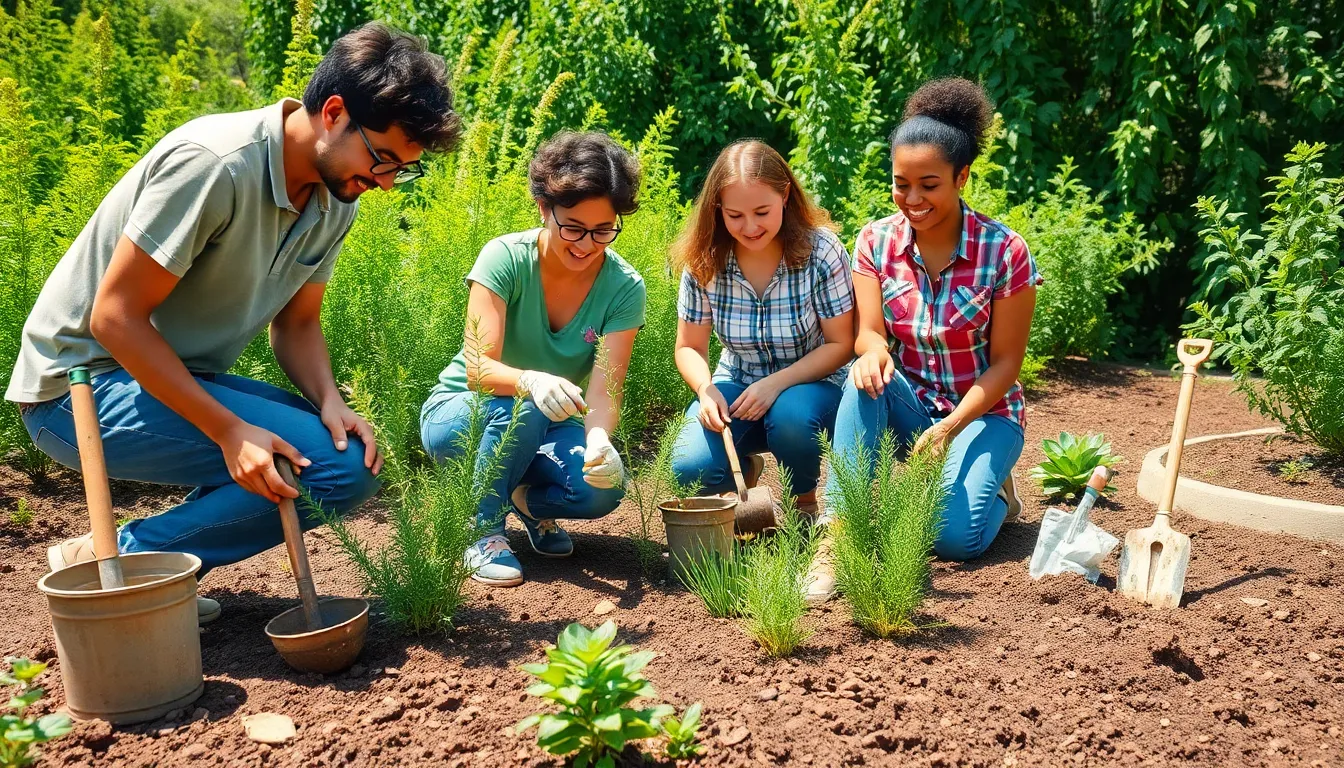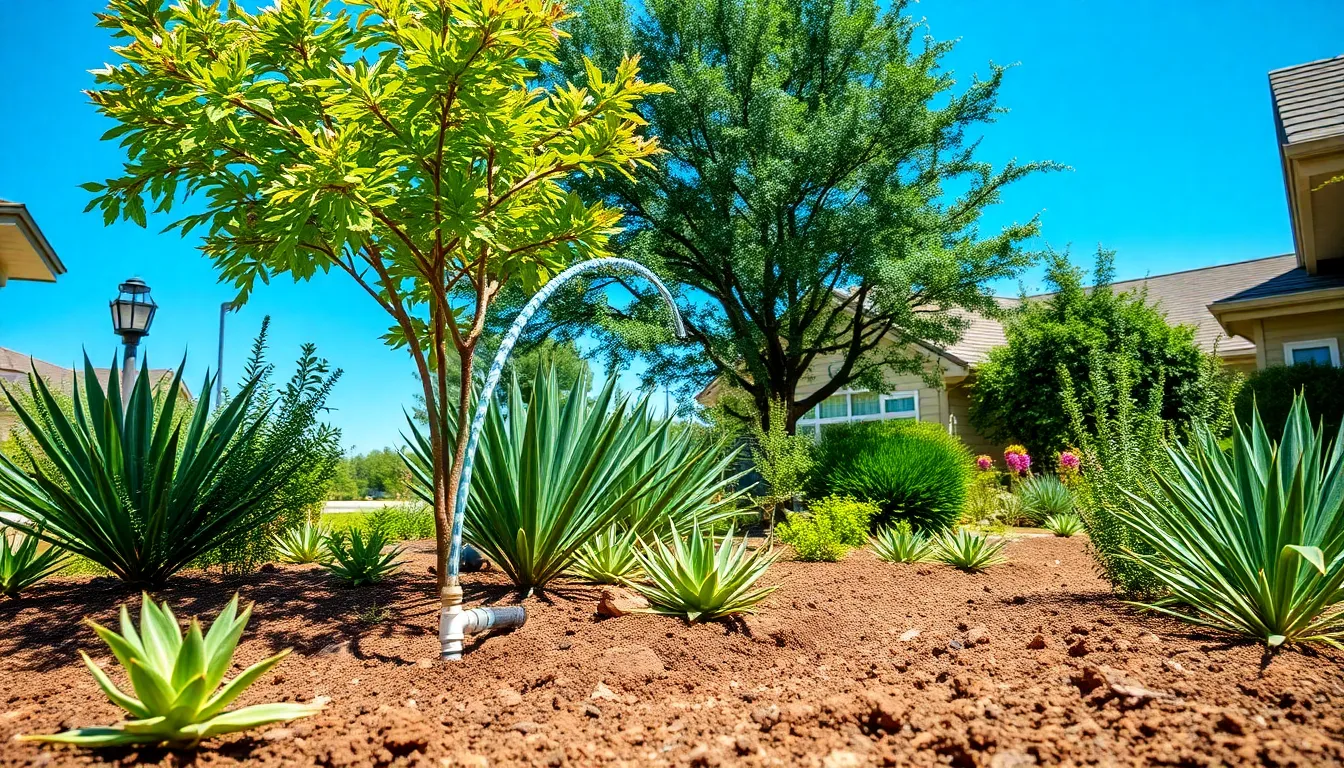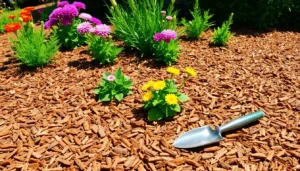In a world where water is more precious than ever, landscape water efficiency isn’t just a trendy buzzword; it’s a necessity. Imagine your garden thriving while using less water than a goldfish needs to swim. That’s the magic of smart landscaping! It’s like giving Mother Nature a high-five while saving on that water bill.
Table of Contents
ToggleUnderstanding Landscape Water Efficiency
Landscape water efficiency refers to the practice of optimizing water use in landscaping to promote sustainable and healthy outdoor environments. It’s crucial for addressing water scarcity while maintaining the beauty and functionality of gardens.
Definition and Importance
Landscape water efficiency encompasses strategies and practices designed to reduce water usage in gardens and landscapes. The significance lies in its role in conserving precious water resources amid growing concerns about water scarcity. Implementing efficient practices not only helps lower water bills but also fosters healthier plants and supports local ecosystems. Enhanced water management contributes to ecosystem resilience and encourages biodiversity, making it vital for both environmental and economic reasons.
Key Components of Water Efficiency
Irrigation systems play a crucial role in water efficiency. Drip irrigation and smart controllers minimize water waste and deliver moisture directly to plants’ root zones. Plant selection also matters; choosing drought-resistant varieties reduces overall water requirements. Soil quality impacts water retention; improving organic content enhances soil’s ability to hold moisture. Furthermore, mulch application helps retain soil moisture while preventing weeds. Regular maintenance, including monitoring landscapes for leaks and adjusting irrigation schedules, ensures optimal water use in various conditions.
Benefits of Implementing Water Efficiency Practices


Implementing water efficiency practices offers significant advantages for both the environment and the economy. These benefits highlight the importance of adopting sustainable landscaping techniques.
Environmental Impact
Water-efficient landscaping plays a vital role in preserving natural resources. It helps conserve water, a critical factor in combating climate change and supporting ecosystems. Smart landscaping techniques reduce runoff, leading to improved water quality in local streams and rivers. Native, drought-resistant plants require less irrigation, allowing habitats to thrive without excessive water use. Additionally, soil enhancement practices increase moisture retention, further protecting water supplies. Communities reap rewards through reduced water demand, lowering pressure on local water sources. These environmental improvements foster healthier ecosystems, benefiting all living organisms.
Economic Advantages
Cost savings emerge as a primary advantage of water efficiency practices. Homeowners experience lower water bills due to reduced consumption. Businesses that adopt efficient landscaping can significantly decrease operational costs associated with irrigation. Investing in drip irrigation and smart controllers may seem high upfront, but these systems pay off with long-term savings. Resilient landscapes also enhance property value, attracting potential buyers interested in sustainability. Furthermore, certain jurisdictions offer rebates or incentives for water-efficient landscaping projects, providing additional financial benefits. Overall, economic gains support and promote the adoption of water-efficient practices in landscaping.
Strategies for Improving Landscape Water Efficiency
Optimizing landscape water efficiency involves various effective strategies. Implementing specific practices leads to significant water savings and healthier landscapes.
Native Plant Selection
Choosing native plants stands as a critical strategy for enhancing water efficiency. Native plants adapt well to local climates, requiring less water than non-native varieties. These plants attract native wildlife, promoting biodiversity while contributing to healthier ecosystems. Drought-resistant species, such as lavender or yarrow, often thrive in arid conditions, minimizing irrigation needs. By selecting plants suited for regional environments, individuals can create resilient landscapes that flourish without excessive water use.
Irrigation Techniques
Adopting efficient irrigation techniques plays a vital role in conserving water. Drip irrigation systems deliver water directly to plant roots, reducing evaporation and runoff. Smart irrigation controllers adjust watering schedules based on weather conditions, ensuring optimal use. Rainwater harvesting systems collect precipitation for landscape irrigation, complementing other water sources. Implementing these advanced irrigation methods enhances water management, fosters plant health, and supports sustainable landscaping goals.
Technologies Enhancing Water Efficiency
Several technologies play a vital role in enhancing water efficiency in landscaping. These innovations promote sustainable landscaping practices while ensuring gardens thrive with minimal water usage.
Smart Irrigation Systems
Smart irrigation systems adjust water delivery based on real-time weather data and soil moisture levels. By utilizing sensors and automated controllers, these systems prevent overwatering, saving up to 50% of water in some cases. They dynamically alter watering schedules to suit the specific needs of various plant types, ensuring that only necessary amounts of water are applied. This technology significantly reduces water waste, promotes healthier plant growth, and ultimately lowers water bills for homeowners.
Soil Moisture Sensors
Soil moisture sensors provide precise data on the water content within the soil. With an accurate understanding of moisture levels, they help determine when irrigation is necessary. Many sensors connect to smart irrigation systems, allowing for integrated management of water applications. This technology enables landscape professionals and homeowners to optimize watering schedules and practices. Studies show that utilizing soil moisture sensors can lead to a reduction in water usage by up to 30%, contributing to more efficient and sustainable landscaping efforts.
Case Studies of Successful Water Efficiency Programs
Successful water efficiency programs have emerged across various landscapes, showcasing innovative approaches. These initiatives provide valuable insights into optimizing water use and fostering sustainability.
Urban Landscapes
Urban water efficiency programs implement effective strategies to reduce water waste and enhance green spaces. In California, the city of San Diego transformed public areas by replacing traditional lawns with drought-resistant plants. This adaptation reduced water consumption significantly while maintaining aesthetics. Additionally, a project in Tucson, Arizona utilized smart irrigation technology, leading to substantial water savings. Through real-time data monitoring, landscapes thrived with minimized water use during dry spells.
Agricultural Applications
Agricultural water efficiency initiatives serve as exemplary models for sustainable practices. In Israel, farmers adopted drip irrigation systems, achieving a 30% reduction in water usage while increasing crop yields. This method allows precise water delivery to plant roots, optimizing resource use. Another example comes from Australia, where integrated water management practices have led to improved soil health and reduced evaporation rates. These agricultural strategies highlight the importance of innovation in addressing water challenges while ensuring productivity.
Embracing landscape water efficiency is essential for creating sustainable outdoor spaces. By adopting smart landscaping practices and utilizing innovative technologies, individuals can significantly reduce water consumption while enhancing the health of their gardens. The integration of drought-resistant plants and efficient irrigation systems not only conserves valuable water resources but also supports local ecosystems.
As communities continue to face water scarcity, prioritizing water efficiency in landscaping becomes increasingly vital. The economic benefits, such as lower water bills and increased property value, further underscore the importance of these practices. With ongoing advancements in technology and successful programs leading the way, the future of landscape water efficiency looks promising, paving the path for healthier and more resilient environments.







